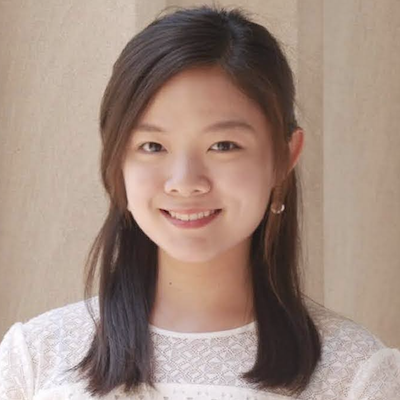Meet the team behind Innovating Learning and Education in the Era of AI.
MIT RAISE Team
We bring together diverse expertise from faculty, staff and students across all five schools of MIT.
Faculty and Research Scientists
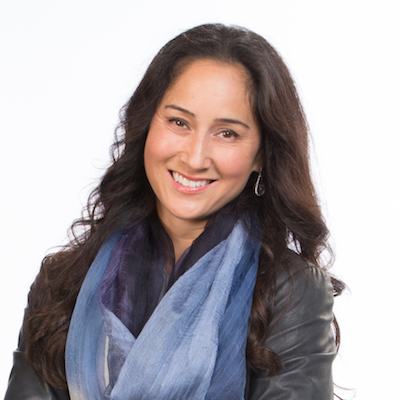
Cynthia Breazeal
Director, RAISE ● Professor, MIT Media Lab, Personal Robots Group ● Associate Director, MIT Media Lab Dean for Digital Learning, MIT Open Learning
Breazeal leads RAISE to advance research and innovation at the intersection of AI, social empowerment, and education and to foster diversity and inclusivity in an AI literate society.
Her research investigates new ways for K-12 students to learn about AI concepts, practices and ethics by designing, programming, training and interacting with robots, AI toolkits and other technologies. Her research also develops personalized learning companions for language, literacy and social-emotional development.

Hal Abelson
Co-Director, AI Literacy & Technologies ● Professor of Computer Science and Engineering, MIT CSAIL ● Founder, App Inventor
Abelson is a pioneer of constructionist learning and computational thinking.
He has developed tools and programming languages to help students learn about AI and computer science. App Inventor empowers people with little programming experience to write mobile phone applications. His team is expanding App Inventor to help students learn about AI and develop AI-enabled mobile apps.

Eric Klopfer
Co-Director, Professional Development and Education Research ● Professor, Comparative Media Studies/Writing ● Director, Eduction Arcade ● Co-Director, J-WEL World Education Lab
Klopfer is an expert in serious game design to promote student engagement and learning in STEM.
His work uses a design based research methodology to span the K-12 educational technology ecosystem, from design and development of new technologies to professional development and implementation to prepare the next generation of STEM educators. He is Director of the Scheller Teacher Education Program.
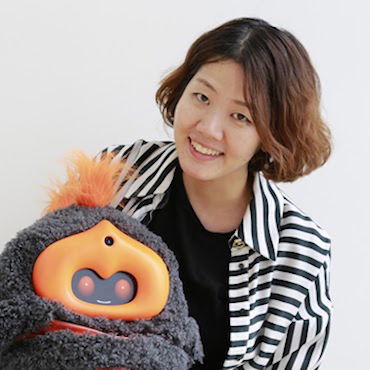
Hae Won Park
Co-Director, AI-Supported Learning ● Research Scientist, MIT Media Lab, Personal Robots Group
Hae Won Park is an expert in Social Robotics and is a Principal Investigator of the Social Robot Companions Program. Her
research focuses on socio-emotive AI and machine learning applied to the personalization of social robots that support long-term interaction with people. For this project, she develops peer-like social robots that play educational games with young children to foster literacy and language skills as well as positive learning attitudes.

Sanjay Sarma
Professor, Department of Mechanical Engineering ● Vice President, MIT Open Learning
Sarma is the VP for Open Learning at MIT, which includes the Office of Digital Learning, the MIT Integrated Learning Initiative
and the Abdul Latif Jameel World Education Lab. His research developed new standards for RFID and he has been very influental in the field of Internet of Things -- that are becoming increasingy intelligent and connected. His core interest areas for this project are K-12 AI education, vocational-technical AI training, and the future workforce.

Mitchel Resnick
Advisor, RAISE ● Professor, Media Lab, Lifelong Kindergarten Group ● Founder, The Scratch Foundation
Resnick is a world leader in constructionist approaches to creative learning. His team develops the Scratch
programming language and online community, used by over 200 million children and educators around the world. He is author of the book "Lifelong Kindergarten: Cultivating Creativity through Projects, Passion, Peers and Play." His focus in this project is how AI and Scratch can promote children's creative thinking.

David Birnbach
Lecturer, MIT Sloan School of Management
Birnbach's research focus is at the intersection of technology innovation, entrepreneurship, and vocational education. He is a faculty mentor in several Action Learning programs including
the Global Entrepreneurship (G-Lab), Enterprise Management (EM-Lab), and the China and India Lab. He helps students put classroom theory into practice, as students work side-by-side with organizations to apply classroom lessons to high-impact business and society challenges. For this project, his key area of focus is in creating a new AI career pathway for vocational-technical education.

John Gabrieli
Professor, Department of Brain and Cognitive Sciences ● Director, Martinos Imaging Center, McGovern Institute ● Director, MIT Integrated Learning Initiative
John Gabrieli is a behavioral neuroscientist.
His research focus is on the neural mechanisms of memory, cognition, and emotion in the human brain and how those mechanisms are disrupted in neurological and psychiatric disorders. For this project, his interest is in early assessment and intervention to support young learners with special needs such as ASD and dyslexia.

George Westerman
Senior Lecturer, MIT Sloan School of Management ● Faculty Director, Workforce Learning, MIT Jameel World Education Lab
Westerman works at the nexus of executive leadership and
technology strategy. He has written three award-winning books and published in top journals. He is now focused on helping employers, educators, and other groups to rethink the process of workforce learning around the world. George is co-chair of the MIT Sloan CIO Leadership Awards, faculty advisor to the Board of Directors for the Technology Business Management Council.

Robert Shin
MIT Lincoln Lab, ISR Systems and Technology, Tactical Systems ● Director, Beaver Works at MIT
Shin is the Head of the Intelligence, Surveillance, and Reconnaissance (ISR) and Tactical Systems Division at MIT Lincoln
Laboratory. He is also the Director of Beaver Works, a joint center establihsed by MIT Lincoln Lab and the MIT School of Engineering. Beaver Works offers a project-based STEM summer program to talented high school students to learn about various technologies. AI related topics include autonomous driving, data science for health, digital assistants, and more.
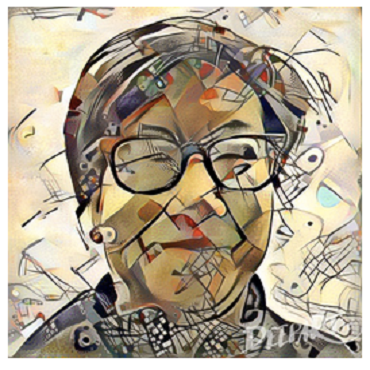
Irene Lee
Research Scientist, MIT Scheller Teacher Education Program and Education Arcade
Irene Lee is a research scientist in MIT's Scheller Teacher Education Program and Education Arcade.
Her expertise is in computational thinking and integrating computer science into STEM education. Her research investigates K-12 student learning through integrated STEM and computing curricula, teachers' development as computational thinkers, and new ways for K-12 students to learn foundational AI concepts.
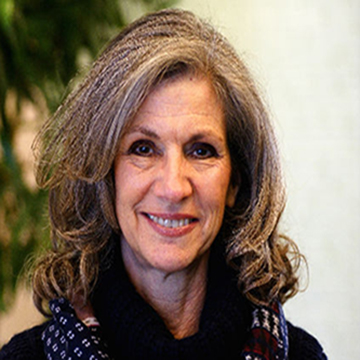
Glenda Stump
Education Research Scientist, Open Learning
Glenda Stump is a Research Scientist for MIT's Open Learning program. Her work examines student beliefs, learning
strategies, calibration of self-efficacy, and on pedagogy related to active learning. She is interested in how teacher beliefs influence pedagogical choices. She has expertise in developing instruments to measure psychological constructs, and statistical analysis of the resultant data. She also runs project evaluations to assess impact from multiple perspectives.
Student Research Assistants
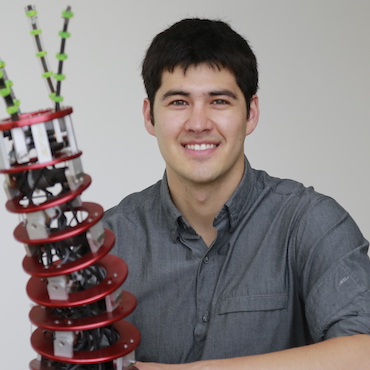
Samuel Spaulding
Graduate Student, MIT Media Lab, Personal Robots Group
Sam Spaulding is a PhD graduate research assistant with the Personal Robots Group at the MIT Media Lab. His research
focuses on developing social robot learning companions for early-language and literacy skills. He synthesizes insights from machine learning, affective and educational sciences, and children’s media design. He develops affective personalization algorithms and is interested in how transfer learning can accelerate and improve personalization across students.

Randi Williams
Graduate Student, MIT Media Lab, Personal Robots Group
Randi Williams is a PhD graduate research assistant developing new technologies and curriculum for K-12 AI Literacy. She has developed
a number of AI education projects, including PopBots, social robot learning companions that teach AI through social interaction. Additionally, she runs studies that investigate children’s relationships with intelligent agents. To address misunderstanding and mistrust of AI, Randi is preparing the next generation to use AI to solve important problems in their communities.
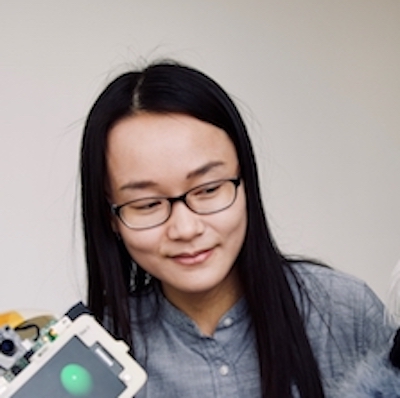
Huili Chen
Graduate Student, MIT Media Lab, Personal Robots Group
Huili Chen is a PhD graduate research assistant in the Personal Robots group at the MIT Media Lab. Her research interests
encompass affective computing, human-robot interaction, machine learning, and psychology. She designs algorithms for social robots that can adaptively support and engage children as empathetic, peer-like companions to facilitate learning outcomes. She also computationally models parent-child interaction dynamics during storytelling.
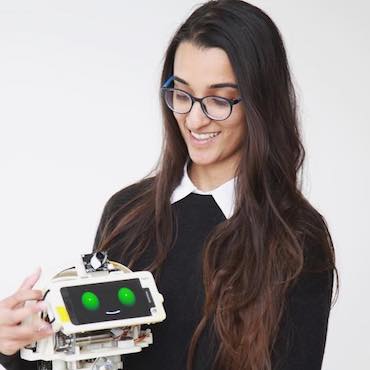
Safinah Ali
Graduate Student, MIT Media Lab, Personal Robots Group
Safinah is a PhD research assistant in the Personal Robots Group at the MIT Media Lab.
Safinah Ali's work focuses on leveraging child-robot interaction to enhance early childhood literacy as well as developing children's learning mindsets such as creativity, growth mindset and curiosity. Her recent work involves designing game interactions that afford children and embodied robots co-create art. Her previous work has revolved around educational game design, assistive technology and human-computer interaction.
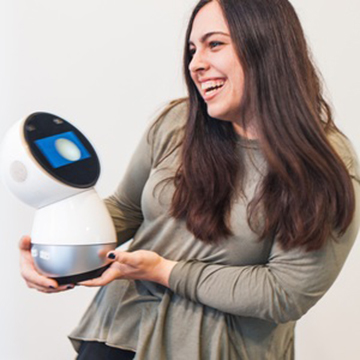
Daniella DiPaola
Graduate Student, MIT Media Lab, Personal Robots Group
Daniella DiPaola is a MS graduate research assistant with expertise in human factors, user-centered design,
STEM learning technologies for children. She has worked as a researcher in the consumer robotics industry, focusing on human-robot interaction paradigms in the home, long-term livability, and robots in the lives of children and older adults. Her research interests include understanding the ethical, social, and emotional implications of technology. She is currently working on AI + Ethics curriculum for K-12 students.
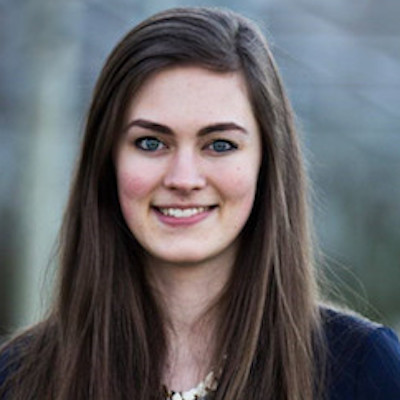
Jessica van Brummelen
Graduate Student, CSAIL, MIT App Inventor
Jessica is an EECS PhD graduate research assistant aiming to empower learners with technology to solve real world problems.
Alongside the MIT App Inventor team, she has developed an interface to enable nearly anyone to develop conversational agents, a web-based teachable conversational agent for 3-5th graders, and a voice-first, natural language tool for programming. She believes that given the right tools, knowledge and skills, anyone can create significant positive change in their community.
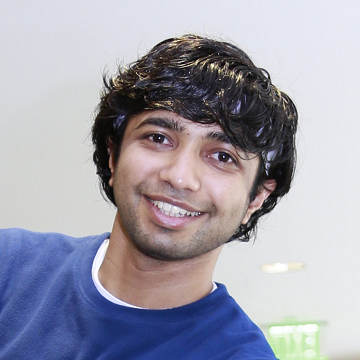
Ishaan Grover
Graduate Student, MIT Media Lab, Personal Robots Group
Ishaan is a PhD graduate research assistant with the Personal Robots Group at the MIT Media Lab. His research
interests lie in Machine Learning and its applications in the field of human-robot interaction and early-literacy education. His recent work focused on building graphical models using word semantics for predicting children's vocabulary from partial information about their existing vocabulary. Prior to this, he worked on algorithms to enable reinforcement learning agents to learn from human feedback. In industry, he has interned at Apple, Palantir and Microsoft where he worked on applications ranging from natural language understanding to anomaly detection.
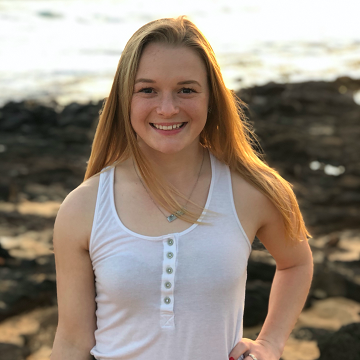
Chessa Hoekstra
Graduate Student, MIT Media Lab, Personal Robots Group
Chessa Hoekstra is an MEng student in the Personal Robots Group developing new tools and curricula for AI Literacy.
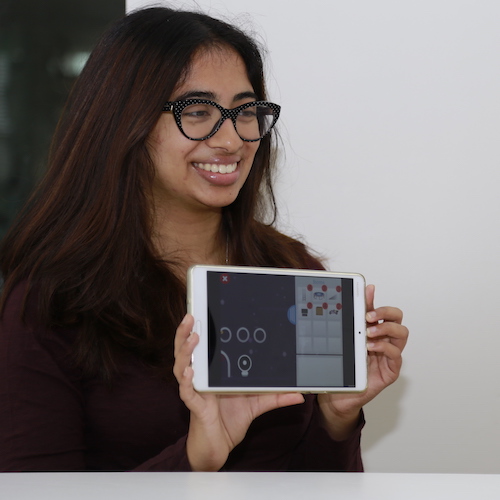
Nisha Devasia
Undergraduate Researcher, MIT Media Lab, Personal Robots Group
Nisha Devasia is an undergraduate research assistant with experience in game design and game adjacent backend engineering.
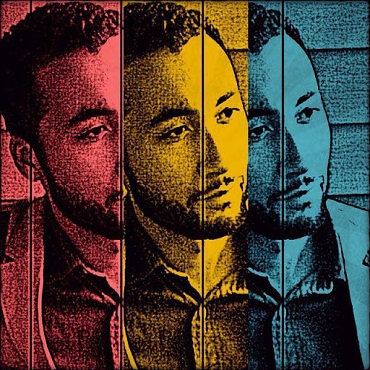
Stephen Kaputsos
Graduate Student, MIT Media Lab, Personal Robots Group
Stephen P. Kaputsos is a graduate research assistant exploring augmentation of human-robot collaboration.
Stephen leverages his multidisciplinary background in psychophysiology, cognitive systems engineering, and virtual production to engineer neuromorphic technologies that enhance both human and machine perception. His current research utilizes extended reality (XR) technologies, such as augmented reality (AR) and virtual reality (VR), to enhance human-robot task performance, communication, and teaming.
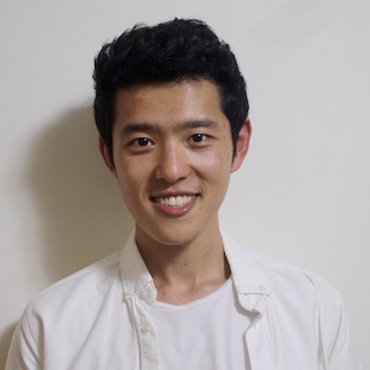
Xiajie Zhang
Graduate Student, MIT Media Lab, Personal Robots Group
Xiajie Zhang has worked on various projects in child-robot interaction with a focus on literacy education and has experiences in affective analysis,
educational game development, interaction design, and computational HRI. His interest is the intersection of cognitive science and robotics. He is especially interested in studying social cognition and developing human-robot interactions that could provide unique and uplifting experiences for people.
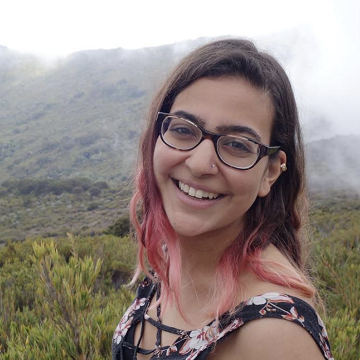
Nada Hussein
Graduate Student, MIT Media Lab, Personal Robots Group
Nada Hussein is an M.Eng student with the Personal Robots Group at the MIT Media Lab, focusing on real-time music analysis and accompaniment.

Nicole Pang
Graduate Student, MIT CSAIL
Nicole Pang is a MEng student and research assistant in EECS working with Personal Robotics Group and App Inventor.
She has worked as a product manager in applied AI, at Google and TensorFlow. Her interests include democratizing AI education and understanding AI policies around the world. She is currently working on curriculum on how to design & create impactful products, to be integrated with AI workshops and taught to K-12 students.
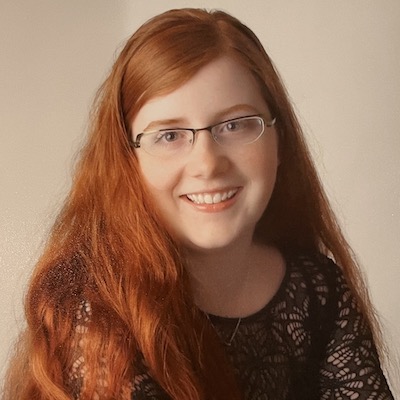
Murielle Dunand
Graduate Student, MIT App Inventor
Murielle Dunand is a MS graduate research assistant with projects in education, curriculum design, and visually accessible design.
She has worked as a product manager in applied AI, at Google and TensorFlow. Her interests include democratizing AI education and understanding AI policies around the world. She is currently working on curriculum on how to design & create impactful products, to be integrated with AI workshops and taught to K-12 students.

Daniel Kim
Undergraduate Researcher, MIT App Inventor
Daniel is a freshman at MIT studying Computer Science with Data Science and Finance. He joined the MIT App Inventor team in Spring 2020.
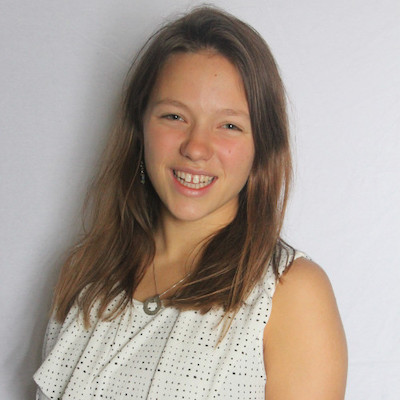
Elizabeth Hakavy
Graduate Student, MIT App Inventor
Elizabeth is a current Master's Student studying Computer Science and Artificial Intelligence. Her undergrad was in Physics and Computer Science and is working on the crossover between Space and Conversational AI.
She has previous experience in STEM education as well as applied Machine Learning through internships at Facebook, JPL and volunteering with the Cambridge Public Schools. She is working on developing curricula for workshops which utilize the alexa component of AppInventor and existing natural language processing models. She is passionate about equal access to STEM education and demonstrating the usefulness in student's everyday lives.
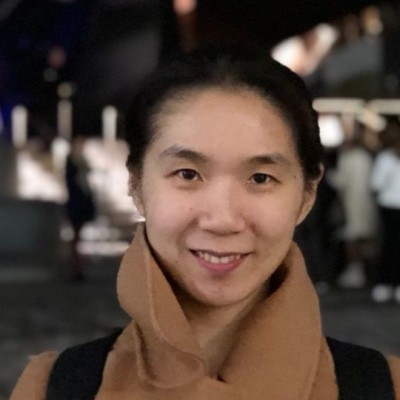
Xiaoxue Du
Postdoctoral Associate, MIT Media Lab, Personal Robots Group
Xiaoxue Du is a Postdoctoral Associate in the Personal Robots Group at the MIT Media Lab. Her current research at MIT PRG focuses on K-12 Artificial Intelligence literacy in inclusive classrooms.
Staff

Jeff Freilich
Program Lead, AI Literacy Project, MIT
Jeff has been at MIT for over twelve years working to develop and nurture research ties between industry and academia, as well as developing technical online courses.
Previously, he’s worked in R&D, product management, marketing and business development roles in industry. Jeff holds a B.Sc. in mechanical engineering from Cornell University and a M.Sc. in mechanical engineering from the Ben-Gurion University of the Negev. He also holds a M.Sc. in management from Boston University.

Kristin Hall
Program Manager, RAISE, MIT Media Lab
Kristin has been at the MIT Media Lab for many years working as a liaison developing research ties between member organizations and researchers.

Alphonse Devasia
Educational Design Consultant, Dubai.
Alphonse Devasia is an independent consultant in Dubai.
He has earned a Masters degree in Technology (Control Systems) with diverse experience in engineering, education, instructional design and curriculum development. He will be collaborating with MIT on research objectives, towards the further development of student curricula and teacher training materials.
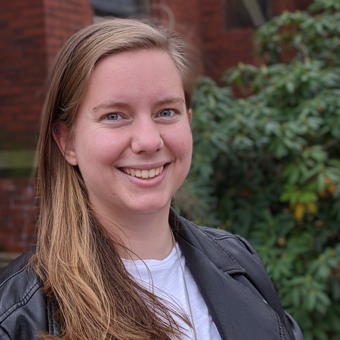
Sarah Wharton
Curriculum Designer
Sarah Wharton is a curriculum designer working in the Scheller Teacher Education Program.

Selim Tezel
Curriculum Designer, MIT App Inventor
Selim is a former K-12 mathematics teacher who has taught overseas and in the US for 22 years,
exploring intersections of technology and playful constructionist pedagogies in the classroom. At MIT App inventor he leads an NSF funded collaboration with YR Media (former Youth Radio) on the Youth Mobile Power series and the Outsmarting Artificial Intelligence project as well as coordinating international contests such as the App of the Month, Coronavirus App Challenge and the annual virtual Hackathon.

Robert Parks
Curriculum Designer, MIT App Inventor
Robert is a curriculum developer, writer, and designer for the App Inventor team.
He previously designed and wrote educational materials for NASA and for out-of-school engineering programs at PBS. In his role as a technology journalist, Robert has served as a senior editor at Wired magazine, and as a contributing writer for Wired, Popular Science, and Make magazines. His 2005 publication, Makers, was the first book about the maker movement.
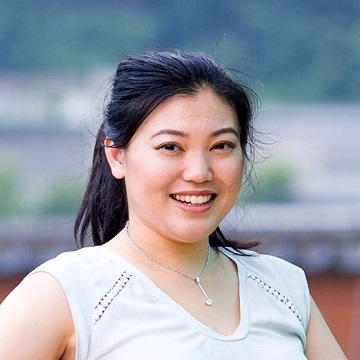
Grace Lin
Assessment Scientist, Playful Journey Lab
As an assessment scientist, Grace Lin is particularly interested in measurement and playful assessments for and of learning.
Her research centers around different areas of cognition and how games can be implemented to not just help people learn, but also measure elusive constructs. She received her PhD in Education from University of California, Irvine, an Ed.M. in Mind, Brain, and Education from Harvard Graduate School of Education, and a B.A. in Psychology from New York University. At UC Irvine, she was trained as a Pedagogical Fellow and conducted teaching assistant and course design PD workshops for both first year graduate students and postdocs across various disciplines. Prior to joining MIT, Grace was a postdoctoral fellow at the University of Oregon, working with nonprofit organizations and on an early childhood measures repository.

Marisol Diaz
Project Manager, MIT App Inventor
Marisol Diaz has been the Project Manager for MIT App Inventor since 2013 and has been at MIT for over 20 years.

Jeff Schiller
Software Developer, Security Architect and Network Manager, MIT App Inventor
Jeff has spent more than 40 years building systems that have to work 24/7 with minimal human intervention.
As Area Director for Security with the Internet Engineering Task Force (IETF), he spent 9 years shepherding the development of critical Internet security technology including IP layer encryption, E-mail encryption and Transport Layer Security (https). His recent work involves providing development and operations for MIT App Inventor.
hidden
© 2021 Copyright MIT. Terms of service FAQ Privacy Policy Accessibility Powered by Bootstrap
